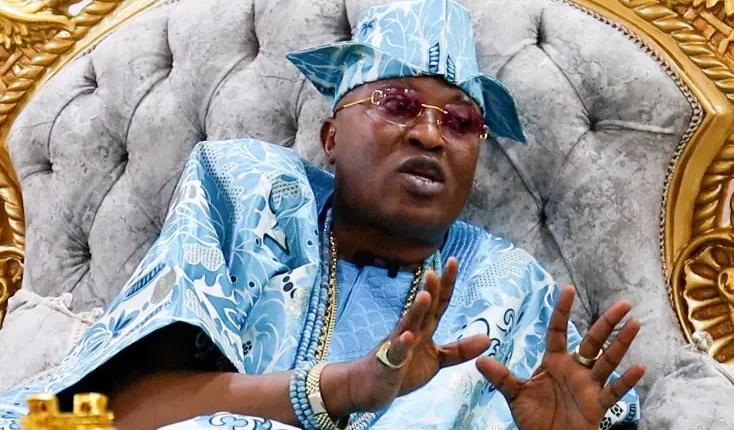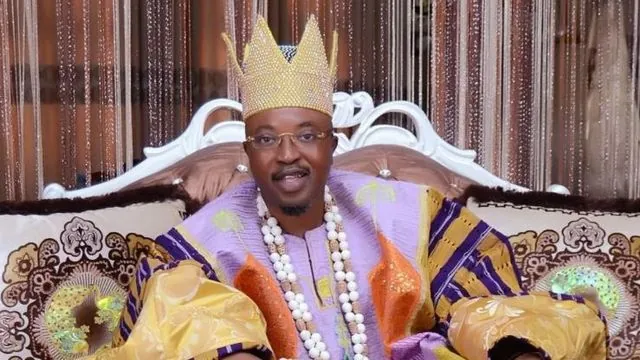The death and burial of Oba Sikiru Kayode Adetona, the Awujale of Ijebu, has sparked an unexpected declaration that could reshape centuries of Yoruba tradition. The Oluwo of Iwo, Oba Abdulrosheed Akanbi, has proclaimed that the Awujale’s passing has brought freedom to Yoruba kings from what he describes as “ritual slavery.” This bold statement has ignited a fierce debate about tradition, modernity, and the evolving role of traditional rulers in contemporary Nigeria.
Breaking the Chains of Ancient Practice
The Oluwo’s claim centers on a complex web of traditional hierarchies that have governed Yoruba kingship for centuries. According to these ancient customs, certain kings were required to show deference to others, particularly the Awujale, who held a position of supreme authority among Yoruba monarchs. This system, which the Oluwo characterizes as “ritual slavery,” bound kings to practices that he argues were demeaning and outdated.
The freedom that the Oluwo speaks of is not just symbolic—it represents a fundamental shift in how Yoruba traditional rulers see themselves and their relationships with one another. For generations, kings would perform specific rituals of submission when meeting the Awujale, rituals that reinforced a hierarchy that placed some rulers above others, regardless of their actual power or influence.

The Weight of Tradition
To understand the significance of this declaration, one must appreciate the deep roots of Yoruba traditional authority. The system of kings owing allegiance to other kings was not arbitrary—it was based on historical relationships, military alliances, and spiritual beliefs that date back centuries. The Awujale’s position at the top of this hierarchy was not just political; it was considered divinely ordained.
This freedom that the Oluwo proclaims comes at a cost. It challenges fundamental assumptions about Yoruba tradition and raises questions about what happens when tradition collides with modern sensibilities. Many traditionalists argue that these customs are not slavery but respect, not oppression but order.
“The Awujale’s death has broken the chains that bound Yoruba kings to outdated practices. We are free to assert our dignity and equality as traditional rulers.” — Oba Abdulrosheed Akanbi, Oluwo of Iwo
The Controversy Unfolds
The Oluwo’s declaration has not been received warmly by all quarters. Many traditional authorities view his statement as disrespectful to the memory of the Awujale and dangerous to the stability of traditional institutions. They argue that the freedom he speaks of is actually chaos, a breakdown of the order that has held Yoruba society together for generations.
Critics point out that the Oluwo has a history of controversial statements and actions that challenge traditional norms. They see this latest declaration as another attempt to gain attention rather than a genuine effort to reform traditional practices. The timing of the statement, coming so soon after the Awujale’s burial, has been particularly criticized as insensitive.
The Modern King’s Dilemma
The controversy highlights a fundamental tension that faces traditional rulers in modern Nigeria. On one hand, they are expected to preserve ancient customs and maintain continuity with the past. On the other hand, they must navigate a modern world where concepts like equality, dignity, and individual rights are increasingly important.
The freedom that the Oluwo claims may resonate with younger Nigerians who see traditional hierarchies as outdated and oppressive. But it may also alienate those who view these traditions as essential parts of their cultural identity. This is the dilemma that traditional rulers face: how to remain relevant without abandoning their roots.

The Broader Implications
Beyond the immediate controversy, the Oluwo’s declaration raises important questions about the future of traditional authority in Nigeria. If the freedom he speaks of takes hold, it could fundamentally alter the landscape of Yoruba kingship. Instead of a hierarchical system with clear chains of command, we might see a more egalitarian arrangement where all kings are equal.
This could have practical implications for how traditional disputes are resolved, how ceremonies are conducted, and how traditional rulers interact with modern government. The freedom to abandon old practices must be balanced against the need to maintain the legitimacy and authority that comes from tradition.
The Challenge of Change
The Oluwo’s statement also reflects broader changes in Nigerian society. As the country continues to develop and modernize, traditional institutions face increasing pressure to adapt or become irrelevant. The freedom to abandon practices that seem outdated may be necessary for survival, but it also risks losing the very essence of what makes traditional authority meaningful.
The challenge is to find a way to preserve the valuable aspects of tradition while discarding those that no longer serve their purpose. This requires wisdom, sensitivity, and a deep understanding of what tradition means to different people.
The Path Forward
The debate sparked by the Oluwo’s declaration will likely continue for some time. The freedom he claims may be embraced by some and rejected by others. The ultimate outcome will depend on how traditional rulers, their subjects, and the broader society navigate this complex terrain.
What is clear is that the death of the Awujale has created an opportunity for reflection and potentially for change. Whether this leads to meaningful reform or divisive conflict will depend on how wisely the various stakeholders handle this moment of transition.
Conclusion
The Oluwo’s declaration that the Awujale’s burial has brought freedom to Yoruba kings from ritual slavery is more than just a controversial statement—it is a challenge to the very foundations of traditional authority. Whether this freedom leads to positive change or destructive chaos remains to be seen, but it certainly marks a significant moment in the evolution of Yoruba kingship.
The traditional institution stands at a crossroads, and the choices made now will determine its future relevance and authority. The freedom to change must be balanced against the responsibility to preserve what is valuable in tradition.
Stay woke. Stay tuned. Stay with AKEWE NEWS.